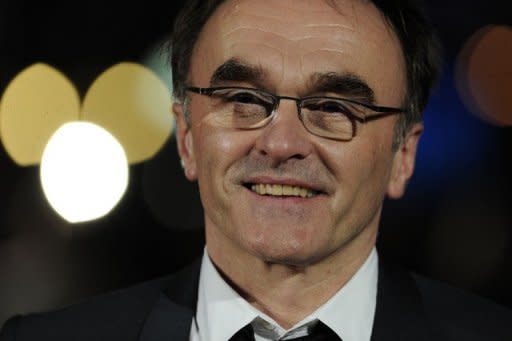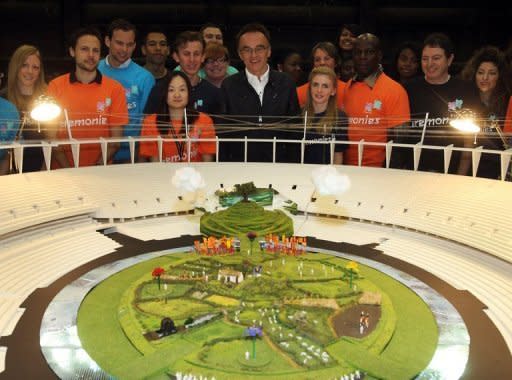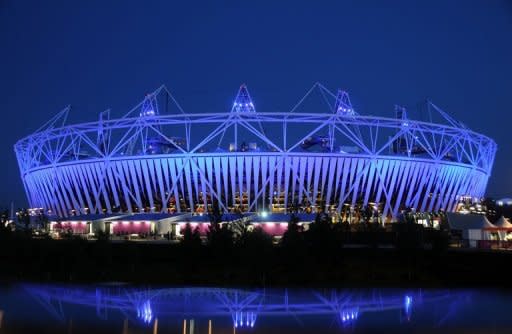Bigger than 'Slumdog': Boyle tackles the Olympics
Danny Boyle, the Oscar-winning director of "Slumdog Millionaire", is approaching the culmination of his own Olympian task: producing Friday's London 2012 opening ceremony. "I've never really done anything on this scale," the 55-year-old Briton admitted last month. Boyle's eclectic cinematic back-catalogue includes the film noir "Shallow Grave", fantasy thriller "28 Days Later" and "Trainspotting", the story of a gang of young heroin addicts in Edinburgh. However, it is the final scene from "Slumdog Millionaire", with its hundreds of Bollywood dancers, which comes closest to the enormity of the Olympic opening ceremony. No fewer than 10,000 participants, mostly volunteers, will take part in the ceremony in front of 60,000 spectators at the Olympic Stadium and an estimated global television audience of one billion. Boyle has begged those attending rehearsals to keep the show a surprise and not go beyond the snippets he has announced publicly. The first section of the ceremony will recreate an English countryside scene. The pastoral set of meadows, peasants and real animals, including horses, cows, and sheep grazing next to picnickers, has stumped commentators, drawing unflattering comparisons to the children's TV show "Teletubbies". But recent aerial images of the set reveal the River Thames' familiar curves winding through the bucolic scene and into a rapidly changing urban landscape. Boyle has also hired nurses from Britain's state-run National Health Service, in order to "tell the story through real people". It is this realism which has defined his films, from the ramshackle Mumbai streets of "Slumdog Millionaire" to the distressing scenes of "127 Hours", which tells the story of a US mountain climber forced to amputate his arm with a pocket knife. "I just try to push realism as far as it will stretch. And I've tried to do that with a lot of my films," the director explained after "Slumdog Millionaire". The ceremony marks another step in the unconventional journey to the top of the entertainment industry by Boyle, who was born on October 20, 1956 in a working-class Irish Catholic family in Bury, a suburb of Manchester in northwest England. His mother was deeply committed to the church and he applied to transfer from his local school to a seminary before a priest took him aside and warned him against it. "Whether he was saving me from the priesthood or saving the priesthood from me, I don't know," he once joked, in an interview with The Daily Telegraph newspaper. Instead of the seminary, he enrolled at Bangor University on the northwest Wales coast, before joining a theatre group in London. He directed several series for BBC television before moving to the big screen in 1994 with "Shallow Grave". Mainstream success arrived two years later with cult hit "Trainspotting". The film follows the lives of drug addicts in Scotland, starkly exploring the highs and many lows of heroin use. "The Beach" (2000) saw him work with US star Leonardo DiCaprio. But it was 2008's "Slumdog Millionaire", set in the slums of Mumbai, which shot him to international fame after it scooped eight Oscars, including the best director award. With £27 million ($42 million, 34.5 million euros) to spend on the Olympics opening ceremony, Boyle's budget will be similar to that spent making Slumdog. As with his films, the soundtrack is set to play a key role, judging by an unconfirmed 86-song setlist published in the media. Included in the list are Adele and The Beatles, and more controversially "God Save the Queen" by the Sex Pistols. Whether the song will she played in front of Queen Elizabeth II on Friday, time will tell.




